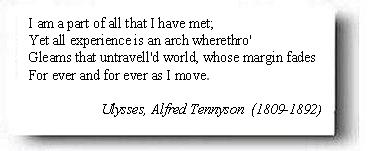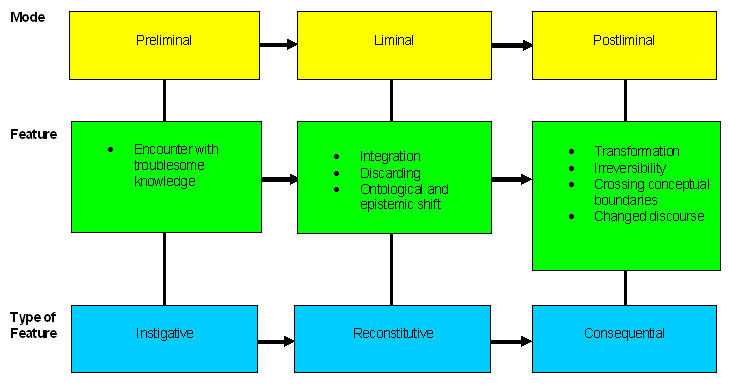The originators of the Threshold Concept would not, however, wish to imply that this relational view has an overly rigid sequential nature. It has been emphasised elsewhere (Land et al, 2005) that
the acquisition of threshold concepts often involves a degree of recursiveness, and
of oscillation, which would need to be layered across this simple diagram (Land, Meyer and Baillie, 2010) [move the cursor across the above figure].
|

|
In short, there is no simple passage in learning from ‘easy’ to ‘difficult’; mastery of a threshold concept often involves messy journeys back, forth and across conceptual terrain (Cousin, 2006)
Transformation is a mandatory feature of a threshold concept.
The threshold concept framework focuses on the identification of what is fundamental to the grasp of a subject and is essentially a transactional curriculum enquiry requiring a partnership between the relevant subject experts, educational researchers and learners (Cousin 2009, Cousin 2010).
|


